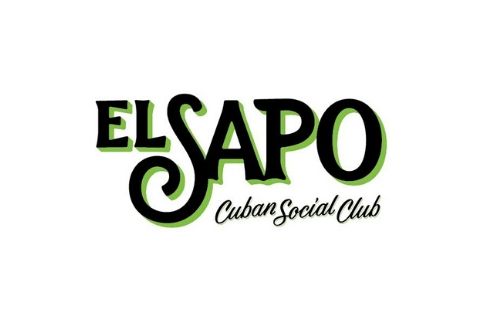Disagreement is over work done for El Sapo Cuban Social Club
| Published:

Photo via El Sapo Facebook
For nearly a year, a Silver Spring restaurant owner has been in a legal dispute with a Virginia contractor that built the space for El Sapo Cuban Social Club. They are disputing who owes the other money, and how much.
Stafford, Va., contractor JSV LLC sued El Sapo owner Raynold Mendizabal in March 2019, alleging that he and his business entity, 8455 CSC LLC, failed to pay more than $147,000 for work done in 2018, prior to the restaurant’s opening in October of that year.
However, Mendizabal and his business entity 8455CSC LLC later filed a countersuit in November 2019, claiming that JSV owes him and the business entity more than $400,000 because he overpaid the contractor. Mendizabal also says the contractor must fix defects in its work. His suit alleges that he lost business due to a delay in construction.
Mendizabal said a Montgomery County Circuit Court judge on Monday denied the contractor’s motion for a summary judgment against him, meaning a decision based on the facts presented, without the need for a trial.
In court documents, JSV says it entered a contract with Mendizabal on April 25, 2018, to “furnish labor and materials for a complete build out” of the restaurant. The work included site supervision, construction, concrete, metalwork, millwork, doors and windows, plumbing and electrical work, among other services.
JSV said Mendizabal paid $580,000 between April and December 2018. The entire project, it stated in court documents, cost $727,408, which included a $700,000 base cost and $27,408 in change orders Mendizabal asked for after the work started.
JSV stated that it is seeking damages of $147,408, Mendizabal’s remaining balance, plus 1.5% interest, court costs and attorney fees.
Both JSV and its attorney John Letteri, with the Washington, D.C., firm Antonoplos & Associates, declined to comment because it is pending litigation.
Mendizibal in his countersuit says that when he entered the contract, he understood that it would be on a “cost-plus” basis — meaning he would owe JSV the cost of the work, plus overhead and profit costs. The costs would be capped, he says, at $700,000.
Mendizabal says in the documents that he and his business partner paid JSV $580,000, but the actual cost of the work plus profit and overhead totaled $293,669. The contractor owes them $286,331, his countersuit says.
Mendizabal also states in court documents that JSV didn’t complete the work in the 16 weeks the parties agreed on, leading to a 2.5-month delay in opening the restaurant. He said it would cost $113,938 for the contractor to fix a number of fixtures it did not properly install.
In an interview with Bethesda Beat in January, Mendizabal said the $400,000-plus lawsuit includes overpayment by him and his partner, damages for faulty work, and financial burden stemming from the delays in construction. He said he doesn’t think JSV’s owner, Frank Vitiello, is a “bad person,” despite the dispute.
“At this point, I would do both parties a disservice by giving my opinions. This is a matter that should be handled according to contract law and whatever the decision of the court [is] should be respected. … I think this is a case where we’ll clarify more than penalize,” he said.
Mendizabal referred all questions about the details of the lawsuit to court documents and to his attorney, Donald Spence of the Gaithersburg firm Spence & Becker LLC. Spence declined to comment.
News of JSV’s lawsuit against Mendizabal was first reported by Washington City Paper in January this month. The article stated that Mendizabal owes $33,495 to a supplier and had a $62,135 tax lien filed against him by the Internal Revenue Service.
A Montgomery County circuit court record shows that a federal lien of $62,135 was entered on Oct. 16. Diane Hazard, a manager in the circuit court’s land records department, said Friday morning that the court hasn’t received documents from the IRS indicating whether the lien had been released.
IRS representatives declined to comment on the case, citing the agency’s privacy policies.
Mendizabal told Bethesda Beat that he is not in financial hardship and is planning on opening another El Sapo in D.C. later this year.
“We have sent payments to the IRS and we’re in the process of getting that lien removed, but it takes time,” he said.
Mendizabal said the debt to the supplier had been “worked out,” but didn’t elaborate.
Rich Kelly, a spokesman for the Maine collections agency Seafax Inc., said in an interview that the $33,000 debt came from a food wholesaler within the past month alleging that the balance was unpaid.
Seafax is a collections agency specializing in portfolio recovery and issuing credit reports for the food industry in North America, according to its website. Seafax was given the responsibility of collecting the past payment in this case.
Kelly declined to elaborate or give the name of the supplier because the company “does not disseminate information to third parties.”
Dan Schere can be reached at [email protected]

